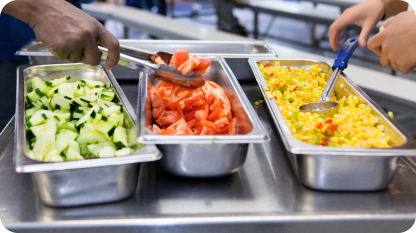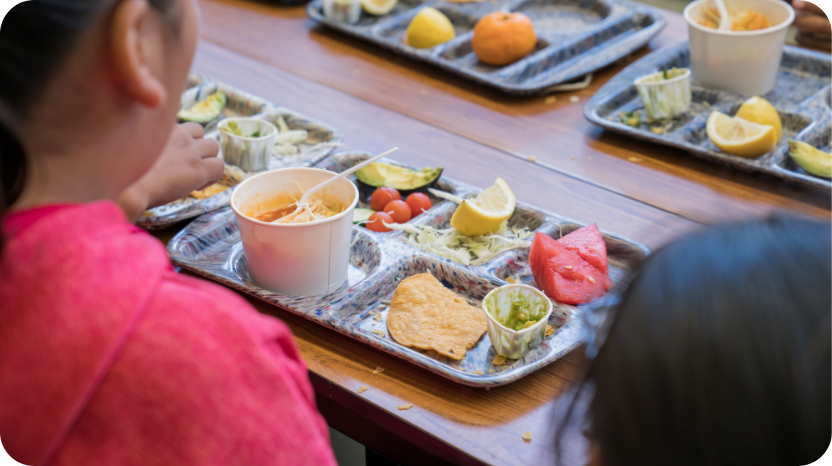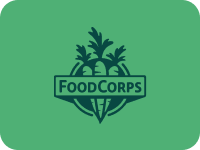Policy Landscape and Our Work
Efforts by FoodCorps and our coalition partners during the 2024 legislative session resulted in the state covering the reduced-price co-pay category for school breakfast and lunch. As a result, students in households earning up to $55,500 annually now qualify for free school meals. During the 2025 legislative session, the School Meals for All CT Coalition is working to further expand access to no-cost meals for all students, regardless of their family income, and to sustain critical farm-to-school funding.
Introduced in January 2025, Senate Bill 1217 proposes eliminating all meal charges for students by requiring local and regional school districts to provide school meals at no cost to families. If passed, the bill would authorize the Connecticut State Department of Education to issue annual grants to school systems participating in the National School Lunch Program and offering child nutrition programs, reinforcing the state’s commitment to universal access.
FoodCorps remains dedicated to strengthening farm-to-school initiatives across Connecticut by leading advocacy efforts within the CT Farm to School Collaborative to continue funding for the CT Grown for CT Kids Grants Program and the CT Local Food for Schools Incentive Program. The CT Grown for CT Kids Grant Program continues to support hands-on food education, training, and infrastructure for schools, early childhood centers, farms, and nonprofits—impacting more than 50,000 students since its launch in 2022. The CT Local Food for Schools Incentive Program boosts school districts’ capacity to purchase local food with matching state funds, helping to build vibrant connections between schools and farms.
Earlier this school year, FoodCorps helped launch “CT Grown for CT Kids Week” with Middletown Public Schools, bringing together over 1,000 students, local leaders, and farmers for a celebration of fresh, local food. The event included a student-led tasting market and an all-local lunch menu, underscoring the power of community partnerships in shaping healthy food environments.
Take Action
Dig Deeper
Legislative & Advocacy Resources
- Key Players & FoodCorps Friends
- Legislative Champions
State Representative Bobby Gibson
- Legislative profile
*Source: EdSight
Have feedback or recommendations for this page? Email us at advocacy@foodcorps.org.
FoodCorps is a non-partisan, non-profit organization. No federal funds were used to prepare or distribute advocacy content.
Last updated January 29, 2026







